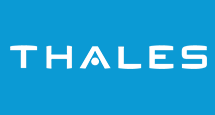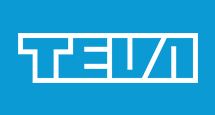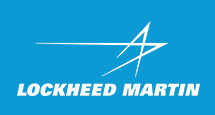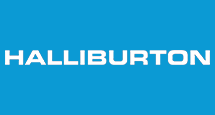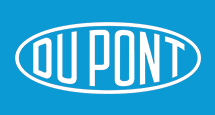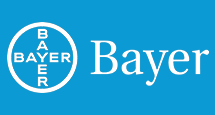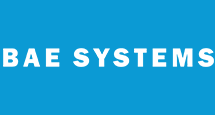Visiongain Publishes Bioprocess Validation Market Report 2023-2033
12 December 2023
Visiongain has published a new report entitled Bioprocess Validation Market Report 2023-2033: Forecasts by Test Type (Extractable/Leachable Testing, Microbiological Testing, Integrity Testing, Physiochemical Testing, Compatibility Testing, Others), by Component (Filters Elements, Media Containers and Bags, Freezing and Thawing Process Bags, Bioreactors, Transfer Systems, Others), by Modality (Filters Elements, Media Containers and Bags, Freezing and Thawing Process Bags, Bioreactors, Transfer Systems, Others), by End-users (Filters Elements, Media Containers and Bags, Freezing and Thawing Process Bags, Bioreactors, Transfer Systems, Others) AND Regional and Leading National Market Analysis PLUS Analysis of Leading Companies AND COVID-19 Impact and Recovery Pattern Analysis.
The bioprocess validation market is estimated at US$498.5 million in 2023 and is projected to grow at a CAGR of 10.8% during the forecast period 2023-2033.
Drug manufacturers encounter numerous challenges as they navigate the landscape of bioprocessing innovation. The increasing demand for therapeutics that are targeted, efficacious, and cost-effective has heightened the challenges faced by drug manufacturers in the market.
The growing and ageing patient populations are fueling innovation in the industry, as more complex biologics, biosimilars, and cell and gene therapies are being developed. There is a growing trend towards increased interest in continuous bioprocessing and flexible facilities.
It is imperative for pharmaceutical companies to identify effective drugs and produce them using manufacturing processes that adhere to regulatory standards. There has been a persistent trend in both the United States and Europe to impose increasingly stringent regulations and implement novel criteria for the verification of regulatory compliance. In the Asian region, specifically in China, there has been an increased emphasis on the implementation and validation of advanced extractable and leachable (E&L) testing methodologies, compared to previous periods. The rise in both interest and adoption of single-use systems in the field of biologics processing has led to this phenomenon.
In light of the continuous development of safety and quality standards by international regulatory entities, it is imperative for pharmaceutical companies to establish their ability to effectively manage and maintain control over their manufacturing processes. During audits, it is imperative to have easily accessible validation plans that provide support for scale-up or scale-out processes, as well as well-documented evidence of successful process validation. These documents hold significant importance, particularly in the context of advancing towards Phase III or the commercial production phase. Product lifecycle management (PLCM) inherently encompasses this aspect.
Numerous novel or enhanced bioprocessing methodologies, employed by pharmaceutical manufacturers, entail the utilisation of complex solvents or formulation recipes. In the context of cell and gene therapies, it is worth noting that liposomal carriers pose challenges in terms of sterilisation through sterilising grade filtration. Alternatively, individuals may experience difficulties that are intensified when subjected to high levels of cognitive load. The utilisation of conventional sterilising grade filters may necessitate the implementation of multiple filtration stages. In order to ensure the reliability and consistency of their products, pharmaceutical companies must address these obstacles by effectively showcasing the ability to replicate and maintain control over the manufacturing process across varying scales, ranging from small to large.
The primary responsibility for bioprocess validation lies with the primary drug manufacturer, but suppliers can also contribute by assisting and augmenting the primary manufacturers. This can be done through small-scale process or membrane validation, utilising either the drug product or drug substance. By establishing a collaborative partnership with the primary drug manufacturer, it is possible to enhance the development of a comprehensive validation control strategy (CS), thereby enabling drug manufacturers to more effectively manage their product lifecycle management strategy.
How has COVID-19 had a Significant Impact on the Bioprocess Validation Market?
The bioprocess validation market has been greatly affected by the COVID-19 pandemic. The significant disruptions in manufacturing and supply-chain operations experienced by companies can be attributed to precautionary lockdowns and other government-imposed restrictions implemented worldwide. The demand for bioprocess validation experienced a notable surge amidst the pandemic due to the necessity of validation throughout all stages of pharmaceutical development for the purpose of monitoring and ensuring accuracy, efficiency, and safety. The surge in COVID-19 cases, characterised by its rapid and unregulated escalation, has prompted a corresponding expansion in the production of biosimilars, combination molecules, and novel vaccines and medications. Consequently, there has been a heightened need for substantial bioprocess validation. Presently, in light of the abatement of the pandemic, the market has experienced a decline in momentum. Therefore, it is anticipated that the market will exhibit consistent growth throughout the projected timeframe of the research.
The market's expansion is attributed to the significant demand for bioprocess validation services, alongside the implementation of rigorous safety and quality regulations pertaining to product certifications and testing in sectors beyond biopharmaceutical and pharmaceutical industries. Additionally, the increasing trend of outsourcing bioprocess validation, combined with the growth in research and development expenditure, contributes to this market growth.
How will this Report Benefit you?
Visiongain’s 315-page report provides 113 tables and 169 charts/graphs. Our new study is suitable for anyone requiring commercial, in-depth analyses for the bioprocess validation market, along with detailed segment analysis in the market. Our new study will help you evaluate the overall global and regional market for Bioprocess Validation. Get financial analysis of the overall market and different segments including test type, component, modality and end-users capture higher market share. We believe that there are strong opportunities in this fast-growing bioprocess validation market. See how to use the existing and upcoming opportunities in this market to gain revenue benefits in the near future. Moreover, the report will help you to improve your strategic decision-making, allowing you to frame growth strategies, reinforce the analysis of other market players, and maximise the productivity of the company.
What are the Current Market Drivers?
Increasing Demand for Biopharmaceuticals
Biologics continued to experience increasing demand as a result of their indispensable efficacy and specificity in the treatment of chronic and complex diseases. It is anticipated that the vigorous R&D efforts aimed at developing innovative therapeutics, along with a growing elderly population with a heightened need for advanced drugs and treatments will further catalyze the growth of the biopharmaceutical industry. Biologics’ success reflects their efficacy in treating major chronic diseases, especially some autoimmune diseases and cancer. Ageing population will be more susceptible to such diseases and is one of the key factors driving the growth of the global biological drugs market. In most of the developed world, the share of elderly population is almost touching a quarter of the population. This is leading to a situation where contributors to healthcare systems are becoming fewer and consumption is increasing. This is creating tremendous pressure on healthcare budgets across the globe. In such a scenario, governments are relying on biologics which overall put lesser burden on healthcare budgets. Since their efficacy is on the higher side, drug consumption is typically lesser, which compensates for their higher cost. Further, biologics enable development of precision medicines, which again promises to improve health outcomes among the patient population.
Over the forecast period, we anticipate rise of more divestitures and out licensing deals from large biopharmaceutical companies. After 3 years of very active deal-making, several large biopharmaceutical companies now have very significant early-stage pipelines and are struggling to find the R&D capacity and capital to move those programs forward.
Increasing Demand for Outsourcing Bioprocess Validation
Biotechnology and biopharmaceutical companies that manufacture bio-products and validate bioprocesses have an enormous demand for testing services. The outsourcing of biopharmaceutical drug and therapeutics manufacturing services drives market growth. Furthermore, the expansion of the healthcare sector and the procurement of essential raw materials by market leaders also contribute to the expansion of the industry.
Furthermore, the market is bolstered by the proliferation of CDMOs that offer drug development and manufacturing services to the pharmaceutical and biopharmaceutical sectors. As predicted, the segment will amass a substantial market share and establish its dominance in the near future.
Where are the Market Opportunities?
Growth Opportunities in Emerging Economies
The burgeoning rate of biopharmaceutical production in developing nations presents a significant prospect for enterprises that specialise in the validation of bioprocesses. The economies in question are experiencing an increase in demand for biopharmaceuticals due to various factors such as population growth and enhanced healthcare availability. Consequently, there is a pressing requirement for rigorous validation procedures. Providers of bioprocess validation services have the opportunity to meet this demand by offering extensive validation solutions that guarantee the safety, effectiveness, and quality of biopharmaceutical products.
In addition, the current endeavours in achieving regulatory harmonisation offer a distinct and advantageous prospect for professionals specialising in bioprocess validation. Numerous developing economies are actively endeavouring to harmonise their regulatory frameworks with international standards, with the aim of bolstering their credibility within the global pharmaceutical market. Biopharmaceutical manufacturers in these regions stand to benefit greatly by partnering with companies that possess the ability to effectively navigate and provide assistance in adhering to the dynamic and ever-changing regulatory landscape.
The emergence of biopharmaceutical manufacturing in developing economies has presented a new avenue of opportunity, driven by significant technological advancements. The implementation of automation, analytics, and real-time monitoring systems requires the implementation of sophisticated validation procedures to guarantee smooth integration and adherence to regulatory standards. Service providers specialising in bioprocess validation, who possess extensive knowledge in validating these advanced technologies, can significantly contribute to the technological advancement of the biopharmaceutical sector in these specific regions.
Companies offering efficient bioprocess validation services find emerging economies to be a favourable environment due to their potential for cost-effective solutions. Service providers can gain a competitive advantage by meeting the need for cost-effective validation solutions while maintaining high quality standards. This approach is in line with the cost-conscious tendencies observed among numerous biopharmaceutical manufacturers in these economies. It aims to establish a mutually advantageous partnership that facilitates growth within the sector.
In addition, the increasing prevalence of outsourcing in the field of biopharmaceutical manufacturing offers a strategic advantage for professionals specialising in bioprocess validation. The demand for dependable and specialised service providers is on the rise as companies in emerging economies progressively delegate their manufacturing and validation procedures to external entities. By providing extensive validation services, companies have the opportunity to establish themselves as reliable partners, enabling biopharmaceutical manufacturers to concentrate on their fundamental areas of expertise while guaranteeing adherence to regulatory requirements.
Harmonized Bioanalytical Testing Opens New Opportunities
With the advancement of harmonised bioanalytical testing, particularly in the realm of sensitivity analysis, it is anticipated that there will be a corresponding rise in the demand for enhanced scientific rigour in assay procedures. The implementation of harmonised bioanalytical testing is anticipated to enhance the progress of drug development through the facilitation of consistent assay performance and the validation of results across Contract Research Organisations (CROs) conducting global trials in various geographical regions. This application is particularly pertinent for populations affected by rare diseases and for products related to cell and gene therapy. However, the benefits of harmonised bioanalytical testing extend to a wide range of drug development endeavours.
Furthermore, the implementation of ICH M10 not only facilitates the synchronisation of procedures, templates, and internal training programmes, but also empowers Contract Research Organisations (CROs) to enhance their knowledge and understanding. This is achieved through the conduction of comprehensive gap analyses of existing methodologies and engaging in meaningful discussions with their sponsor partners regarding potential modifications.
Smaller biotechnology companies, which face greater limitations in terms of internal resources in comparison to larger pharmaceutical companies, can leverage the concentration of updated ICH M10 knowledge and capabilities within Contract Research Organisations (CROs) to reduce the extent of their internal efforts in updating study protocols, methods, and Standard Operating Procedures (SOPs).
The development of the ICH M10 guidelines aimed to address the inherent challenges faced by biopharmaceutical companies when operating in diverse countries and regulatory agencies. These challenges encompass issues related to data reproducibility and scientific validity, with the ultimate goal of expediting the process of bringing their drug(s) to the market.
The ICH M10 guideline enhances existing guidelines through the revision of standard operating procedures (SOPs), validation templates (which now include additional experiments and comparisons that must be conducted), reporting criteria, selectivity prerequisites for participants in clinical trials, and stability testing.
Competitive Landscape
The major players operating in the bioprocess validation market are Almac Group, Charles River Laboratories, CMIC HOLDINGS Co., Ltd., Cobetter Filtration Equipment Co., Ltd., Cytovance Biologics, Cytiva, DOC S.r.l., Eurofins Scientific, Lonza Group, Meissner Filtration Products, Inc., Merck KGaA, Sartorius AG, SGS SA, Thermo Fisher Scientific Inc. These major players operating in this market have adopted various strategies comprising M&A, investment in R&D, collaborations, partnerships, regional business expansion, and new product launch.
Recent Developments
• On 15th November 2023, Cytiva introduced the innovative Cytiva Protein Select technology, designed to streamline and accelerate recombinant protein purification. The self-cleaving traceless tag and complementary affinity chromatography resin standardizes purification for any protein, rendering it unnecessary to use specific affinity binding partners for each protein.
• On 28th September 2023, Sartorius and UK-based start-up SPARTA Biodiscovery agreed to partner on SPARTA’s analysis platform, which helps speed up the development, manufacture, and quality control of nanoparticles for biopharmaceutical drugs. Nanoparticles are small polymer or lipid capsules that act as carriers to deliver active agents to the target cells. As part of the cooperation, Sartorius will invest up to 3.5 million British pounds in a minority shareholding in SPARTA Biodiscovery through its corporate investment unit Sartorius Ventures.
• On 5th June 2023, Waters Corporation and Sartorius announced a new collaboration to develop integrated analytical solutions for downstream biomanufacturing, expanding their joint agreement that began with upstream bioprocessing analytics. Software and hardware integrations between the Waters™ PATROL™ UltraPerformance Liquid Chromatography (UPLC™) Process Analysis System and the Sartorius™ Resolute® BioSMB™ multi-column chromatography platform will give bioprocess engineers access to more comprehensive analytical data for downstream batch and continuous manufacturing, improving yields while reducing waste and driving down biomanufacturing costs.
• On 1st May 2023, Charles River Laboratories International, Inc. launched Accugenix® Next Generation Sequencing for Bacterial Identification and Fungal Identification (Accugenix® NGS). Accugenix NGS simultaneously sequences millions of individual DNA fragments from a sample and provides key information to pharmaceutical and personal care manufacturers regarding microbial control.
Notes for Editors
If you are interested in a more detailed overview of this report, please send an e-mail to contactus@visiongain.com or call +44 (0) 207 336 6100.
About Visiongain
Visiongain is one of the fastest-growing and most innovative independent media companies in Europe. Based in London, UK, Visiongain produces a host of business-to-business reports focusing on the automotive, aviation, chemicals, cyber, defence, energy, food & drink, materials, packaging, pharmaceutical and utilities sectors.
Visiongain publishes reports produced by analysts who are qualified experts in their field. Visiongain has firmly established itself as the first port of call for the business professional who needs independent, high-quality, original material to rely and depend on.


